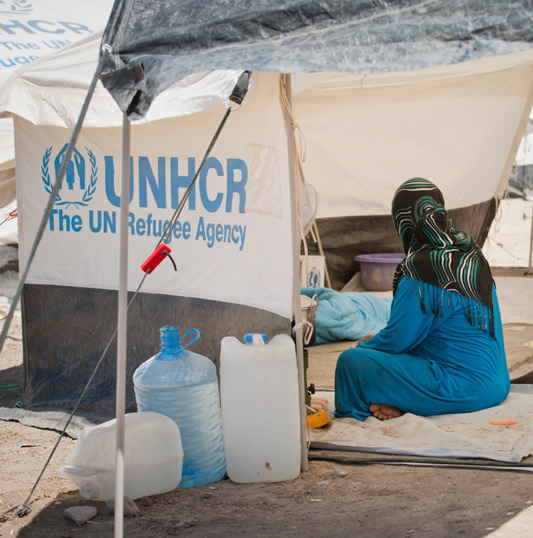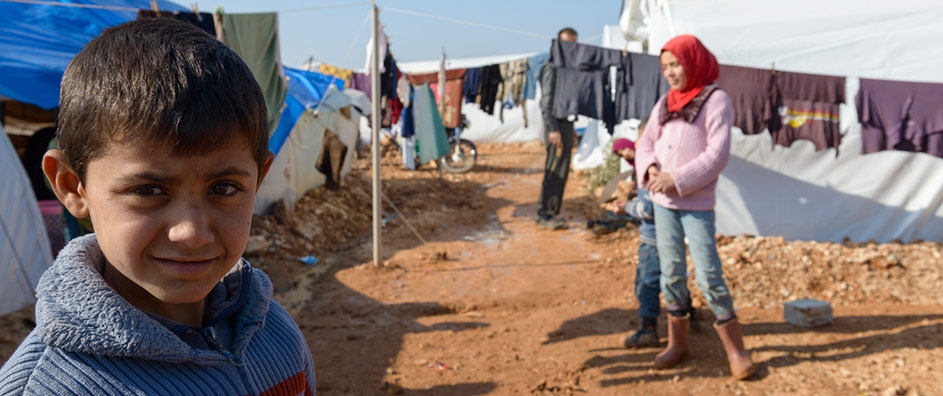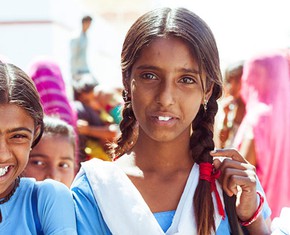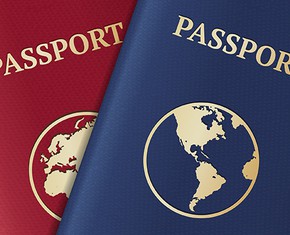The views expressed in our content reflect individual perspectives and do not represent the authoritative views of the Baha'i Faith.
Be united, O kings of the earth, for thereby will the tempest of discord be stilled amongst you, and your peoples find rest, if ye be of them that comprehend… Should anyone seek refuge with you, extend unto him your protection and betray him not. – Baha’u’llah, The Summons of the Lord of Hosts, p. 93.
May you all be united, may you be agreed, may you serve the solidarity of mankind. May you be well-wishers of all humanity. May you be assistants of every poor one. May you be nurses for the sick. May you be sources of comfort to the broken in heart. May you be a refuge for the wanderer. May you be a source of courage to the affrighted one. Thus, through the favor and assistance of God may the standard of the happiness of humanity be held aloft in the center of the world and the ensign of universal agreement be unfurled. – Abdu’l-Baha, The Promulgation of Universal Peace, p. 425.
Pop quiz: what’s the difference between a migrant and a refugee?
If you said refugees are entitled to protection under international law and migrants aren’t, good answer—you’re absolutely right.
In 1951 the multilateral international treaty called The Convention relating to the Status of Refugees defined the legal difference between refugees and migrants, and also determined the rights of asylum-seekers. The Convention defined a refugee as a person fleeing war or persecution in their home country; and migrants as people who voluntarily choose to leave their native country. The overwhelming majority of the world’s nations agreed with these definitions by signing the 1951 Refugee Convention, which originated in Article 14 of the Universal Declaration of Human Rights:
A person who owing to a well-founded fear of being persecuted for reasons of race, religion, nationality, membership of a particular social group or political opinion, is outside the country of his nationality and is unable or, owing to such fear, is unwilling to avail himself of the protection of that country; or who, not having a nationality and being outside the country of his former habitual residence as a result of such events, is unable or, owing to such fear, is unwilling to return to it.
Under the 1951 Convention and other subsequent multilateral agreements, which have now become accepted international law, signatory countries must shelter and protect refugees. By law, countries can deport migrants, but no participating nation can lawfully send refugees back to countries where their lives would be in danger. http://www.unhcr.org/print/55df0e556.html
 “One of the most fundamental principles laid down in international law is that refugees should not be expelled or returned to situations where their life and freedom would be under threat,” the United Nations High Commission on Refugees said recently. The UNHCR issued this statement primarily because various politicians and officials in multiple countries have insisted on calling refugees “migrants,” intentionally inflaming public sentiment against them and conflating their legal status.
“One of the most fundamental principles laid down in international law is that refugees should not be expelled or returned to situations where their life and freedom would be under threat,” the United Nations High Commission on Refugees said recently. The UNHCR issued this statement primarily because various politicians and officials in multiple countries have insisted on calling refugees “migrants,” intentionally inflaming public sentiment against them and conflating their legal status.
The Baha’i teachings have a unique view of these crucial, essential international questions. Baha’is believe that man-made national borders should eventually be abolished, so the earth, humanity’s home, can become one country:
This is one globe, one land, one country. God did not divide it into national boundaries. He created all the continents without national divisions. Why should we make such division ourselves? These are but imaginary lines and boundaries. Europe is a continent; it is not naturally divided; man has drawn the lines and established the limits of kingdoms and empires. Man declares a river to be a boundary line between two countries, calling this side French and the other side German, whereas the river was created for both and is a natural artery for all. Is it not imagination and ignorance which impels man to violate the divine intention and make the very bounties of God the cause of war, bloodshed and destruction? Therefore, all prejudices between man and man are falsehoods and violations of the will of God. God desires unity and love; He commands harmony and fellowship. Enmity is human disobedience; God Himself is love. – Abdu’l-Baha, The Promulgation of Universal Peace, pp. 299-300.
In the Baha’i quotes at the top of this article, both Baha’u’llah and Abdu’l-Baha counsel the planet’s kings and rulers—and the world’s people, as well—to extend refuge to those who seek it. In very specific terms, the Baha’i teachings advise everyone to try to practice kindness to all, no matter their citizenship:
Let not conventionality cause you to seem cold and unsympathetic when you meet strange people from other countries. Do not look at them as though you suspected them of being evil-doers, thieves and boors. You think it necessary to be very careful, not to expose yourselves to the risk of making acquaintance with such, possibly, undesirable people.
I ask you not to think only of yourselves. Be kind to the strangers, whether come they from Turkey, Japan, Persia, Russia, China or any other country in the world. Help to make them feel at home; find out where they are staying, ask if you may render them any service; try to make their lives a little happier. In this way, even if, sometimes, what you at first suspected should be true, still go out of your way to be kind to them — this kindness will help them to become better.
After all, why should any foreign people be treated as strangers?
Let those who meet you know, without your proclaiming the fact, that you are indeed a Baha’i. Put into practice the Teaching of Baha’u’llah, that of kindness to all nations. Do not be content with showing friendship in words alone, let your heart burn with loving kindness for all who may cross your path.
Oh, you of the Western nations, be kind to those who come from the Eastern world to sojourn among you. Forget your conventionality when you speak with them; they are not accustomed to it. To Eastern peoples this demeanour seems cold, unfriendly. Rather let your manner be sympathetic. Let it be seen that you are filled with universal love. – Abdu’l-Baha, Paris Talks, pp. 15-16.
You May Also Like
Comments

















We are living strange days.
Your article was translated and shared with Portuguese speaking friends:
http://povodebaha.blogspot.pt/2015/09/refugiado-ou-migrante-qual-diferenca.html